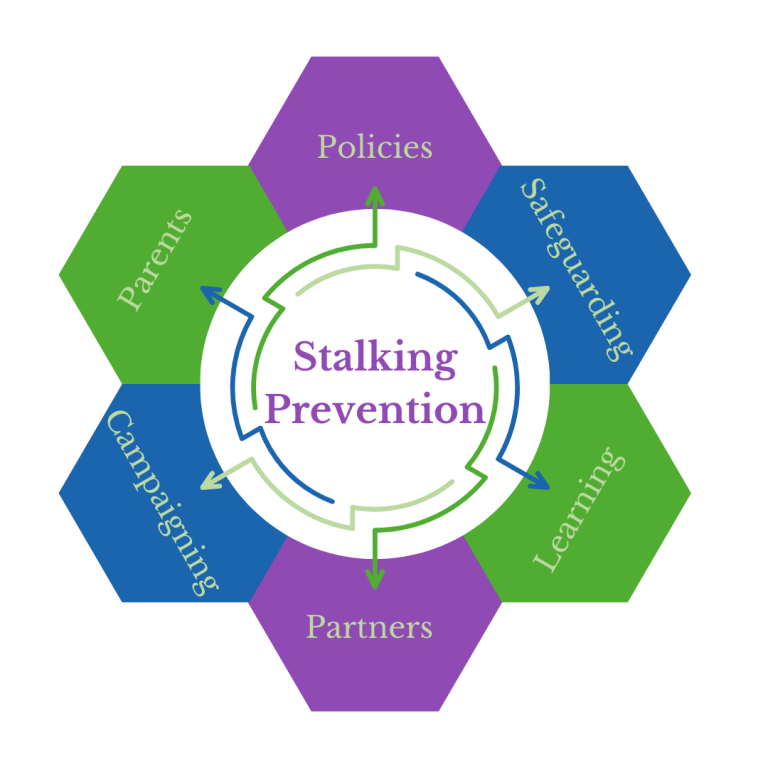Our stalking prevention checklist
We believe that schools and other education environments play a vital role in preventing what happened to Alice happening to others and bringing stalking to an end.
We understand that education institutions prioritise the safety of their students, both within their premises and in their broader communities. This is precisely why many educators turn to our free PSHE resources to address the issue of stalking and raise awareness among students. The education sector are being asked to be experts in lots of areas and there is an ever-increasing pressure placed on schools to prepare young people for adulthood. We ask that part of that preparation includes an awareness that stalking is a serious and life-changing issue.
Working with Paladin National Stalking Advocacy Service, the Alice Ruggles Trust has developed a simple checklist to support schools in creating a full support network around young people to equip them with the skills and confidence to recognise and report stalking.
Policies
- Does the school have a child protection policy that specifically mentions stalking?
- Are the governors and senior leadership team engaged in stalking prevention?
- Are there conversations taking place with the Local Authority to ensure stalking is embedded in all local schools’ policies?
Safeguarding
- Have safeguarding leads had specific training around stalking?
- Are all staff aware of how to handle a stalking disclosure?
- Is senior leadership lobbying for the Keeping Children Safe in Education guidance include advice on stalking?
Learning
- Is stalking taught within the school curriculum in an age-appropriate way?
- Are conversations around stalking invited in the education setting?
- Have the teachers who are delivering lessons on stalking received specific training on stalking to enable them to understand the complex nature of the crime and be able to effectively equip young people to identify it in their lives and others?
Partners
- Does the educational environment have named contacts within policing, local victim services, mental health services?
- Is the educational environment included in local partnership meetings and conversations around stalking and gendered violence?
- Is the education environment aware of local specialist stalking services?
Campaigning
- Are students encouraged to get involved with local and national campaigns about stalking?
- Are there posters and signposting available for students and staff?
Parents
- Are parents and caregivers included in conversations around stalking through letters, newsletters, or information evenings?
- Do parents know how to respond to young people who want to disclose stalking – either their own or someone else’s?
- Are parents given the opportunity to learn about stalking, local support services, and how to recognise and respond to stalking?
Note: This tool is intended as a starter for schools to help them assess how comprehensive their response to stalking is. It is not a safety plan and none of the wording or materials should be construed as safety advice. For specific support around stalking, a specialist stalking service ought to be contacted.
